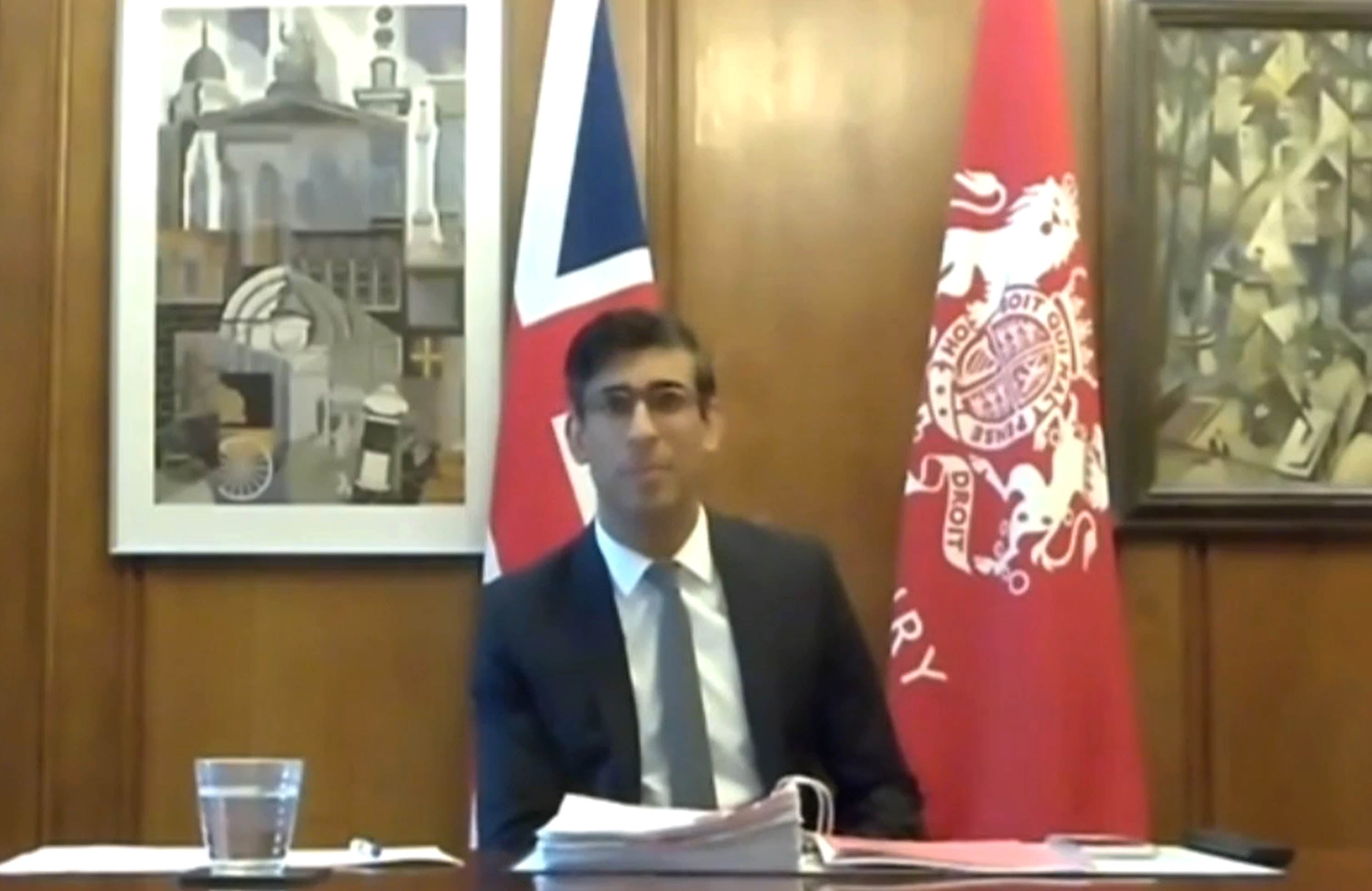Sunak stands by actions over Greensill lobbying questions
The chancellor said all cases were judged on merit.

Your support helps us to tell the story
From reproductive rights to climate change to Big Tech, The Independent is on the ground when the story is developing. Whether it's investigating the financials of Elon Musk's pro-Trump PAC or producing our latest documentary, 'The A Word', which shines a light on the American women fighting for reproductive rights, we know how important it is to parse out the facts from the messaging.
At such a critical moment in US history, we need reporters on the ground. Your donation allows us to keep sending journalists to speak to both sides of the story.
The Independent is trusted by Americans across the entire political spectrum. And unlike many other quality news outlets, we choose not to lock Americans out of our reporting and analysis with paywalls. We believe quality journalism should be available to everyone, paid for by those who can afford it.
Your support makes all the difference.Chancellor Rishi Sunak has said he would not have done anything differently in his approach to Greensill Capital amid questions over the firm’s lobbying.
He added that David Cameron’s lobbying for Greensill Capital was not important to how much time officials in the Treasury spent on the firm.
Speaking to MPs on the Treasury Select Committee the chancellor said: “I looked at the issue on the merits of it, so the identity of the person talking about it was not relevant to the amount of attention and proper due diligence that the issue got and required.
“This was one of many strands of work, and in fact probably the one we spent the least time on during this period.”
Asked if he thought that there were any lessons for the Treasury and if he would do things differently in future, Mr Sunak said: “No, I don’t, as I said, I stand very firmly behind the approach we took.
“I think it was entirely right that we considered these proposals on their merits given the context at the time and I stand by the decisions that we made not to take the proposals forward.”
He added: “It is important for the policymaking process that people feel they can engage with ministers and officials, policy is better as a result of that. And often informal conversations as part of that process or people providing private perspectives on things help with the policymaking process.”
His robust defence of the Treasury’s actions came after the department’s top two officials appeared in front of the same committee earlier on Thursday.
Charles Roxburgh, second permanent secretary to the Treasury, said that he had been aware of allegations about problems at Greensill, but defended his nine meetings with its representatives.
Mr Roxburgh met several times with Greensill at a time when the Government was scrambling to respond to the Covid-19 pandemic.
After a few meetings the Treasury declined Greensill’s attempts to be part of the Bank of England’s Covid Corporate Financing Facility (CCFF) scheme.
Greensill then came back with a proposal on how the scheme could be changed, which was again turned back, before trying, once more unsuccessfully, to suggest another set of changes.
Mr Roxburgh said that Greensill had been upfront about problems it had finding funding for some of its special purpose vehicles, but that Greensill had not revealed bigger problems with its core business to officials at the time.
“We did not discuss whether his core business was in trouble … We knew about funding problems.
“We had no information about any threat to the solvency of his core business.
“That came much later,” he said.
Mr Roxburgh added: “There were reputation issues around Greensill, you can read the newspapers at the time … but we have to talk to companies even if they have bad press.”
When asked if officials grilled Greensill more closely on these issues, he added: “We were aware of what we read in the press about Greensill, not other information that has since come to light.”
Mr Roxburgh said that the collapse would cause just over £8 million in direct costs to the Government, including taxes that Greensill owed, but he did not accept the cost of up to £5 billion that former City minister Lord Myners estimated the taxpayer could indirectly be on the hook for.
“I do not know how Lord Myners came up with that number, we don’t recognise it, you will have to ask Lord Myners how he arrived at it,” he told MPs.
Scrutiny of former prime minister David Cameron’s use of his connections to Government to lobby for Greensill have been placed under close scrutiny since the firm collapsed in March this year.
Earlier this month Mr Cameron stressed that he was unaware of any financial difficulty at Greensill until December 2020 when he was told that an attempt to raise funds has not gone as well as hoped.
According to founder Lex Greensill, the rug was finally pulled out from underneath the company when its biggest insurer, Tokio Marine, refused to renew its policies with Greensill.
Greensill provided so-called supply chain finance to businesses, which meant the finance firm would pay a company’s invoice immediately after it was sent, therefore cutting out the usual delay which can restrict companies’ cash flows.
MPs focused much of their questioning around the time that had been taken out of the schedules of top officials in assessing Greensill’s proposals and asked whether as much time would be spent if a former prime minister had not made the request.
Top lawyer Nigel Boardman has been tasked by Prime Minister Boris Johnson to look into the use of supply chain finance in Government.